TABLE OF CONTENTS
Marijuana testing gives consumers the information necessary to make a buying decision based on the chemical composition and potency of a marijuana product.
Many consumers prioritize potency, making precise testing essential, especially considering the reliance of numerous medical marijuana patients on consistent and pure dosages.
Cannabis enthusiasts also rely on the potency of the product as it significantly affects their overall experience.
Generally, cannabis testing is performed by independent laboratories to determine the potency and purity of cannabis products.
However, there are some user-friendly and affordable ways that users can perform their own testing at home.
Cannabis Potency Testing
There are a wide range of marijuana testing methods that are used in order to assess potency, quality and safety of cannabis products so that consumers can be adequately informed.
Each state with cannabis access laws has its own testing requirements so you have to find out what that is.
State requirements can include cut-off levels of solvents used during the extraction process, pesticides, heavy metals, and other contaminants. In addition, states may require companies to list the THC and CBD content of products at the very least.
Some companies and testing labs may go above and beyond and provide information about the concentration of terpenes in the product.
There are a few testing procedures, though, that are common to the cannabis industry. Cannabis potency details are helpful in knowing the exact CBD and THC levels in each product or marijuana plant.
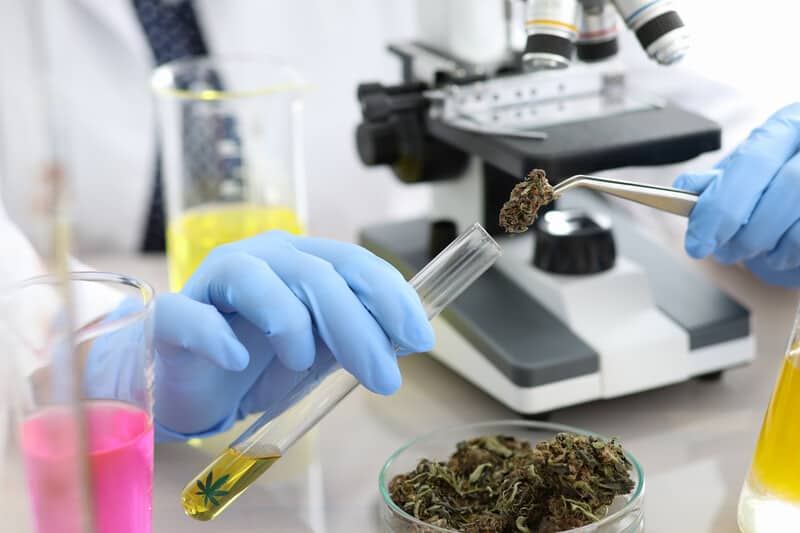
CBD and THC Levels
Data related to cannabinoid potency quantifies the cannabinoid levels (mainly THC and CBD) found in cannabis products. The CBD and THC potency data is needed by producers. The levels of CBD and THC have to be known by the consumer so they are aware of how much to consume.
For instance, there are some cannabis patients that might desire a marijuana strain that has a higher ratio of CBD:THC while recreational users might want the opposite. Terpenes are also other compounds that could be tested, even though, it is not a legal state requirement.
Right now, we are only focusing on cannabis potency testing for CBD and THC.
THC and CBD Measurement Testing
There are several ways that analytical testing labs can measure the concentrations of CBD and THC.
Licensed labs use a few select methods to determine potency and purity. However, there is no standard determining which testing method a lab has to use.
HPLC or High Performance Liquid Chromatography method is most commonly used.
High-Performance Liquid Chromatography (HPLC) is a powerful analytical technique used to separate, identify, and quantify components of a liquid or dissolved sample.
HPLC is highly versatile and can be used to analyze a wide range of compounds, making it a fundamental tool.
Using a tube and at a high pressure, the solution is pumped. In the tube, you will find material, which attracts some of the molecules found in the sample and this is based on the material's chemical properties.
There is a detector visible at the end of the column. The compounds that are attracted to the material found in the tube tend to move slower, reaching the detector at a later time.
How HPLC Works
HPLC uses a column packed with a stationary phase, typically composed of small porous particles. The stationary phase can vary in composition, allowing for the separation of different types of compounds.
The mobile phase is a liquid or solvent that flows through the column and carries the sample components. The choice of mobile phase depends on the type of compound. It can be composed of various solvents, such as water, methanol, acetonitrile, or a combination.
The column is a critical component where the separation occurs. It is packed with the stationary phase material, and the sample components interact with this phase as they pass through the column. Separation is achieved based on differences in chemical properties, including polarity, size, and affinity to the stationary phase.
The presence of the each kind of cannabinoid will quantify the detector as soon as it is detected. The lab measurement is then listed clearly on the marijuana packaging. Accuracy in cannabis potency testing is of utmost importance to provide consumer information.
How to Test for Cannabis Potency Yourself
If you're growing your own cannabis or obtain your cannabis from a source that doesn't test it, there are few potency testing methods you can use. If you live in a legal state, you may be able to have a commercial lab perform potency testing, but this method is very expensive if you plan on testing multiple samples.
Potency tests can run you about $50 per test. These techniques can provide potency testing in minutes with a sample of about 1.5 grams of flower.
You can also buy at home testing kits.
While these methods aren't as precise as results from labs that use hi-tech testing equipment, they can provide a nearly accurate estimate of how much THC and CBD is in your sample. They are an affordable option if you require information about the cannabinoid concentration of your flower, extract, or edible.
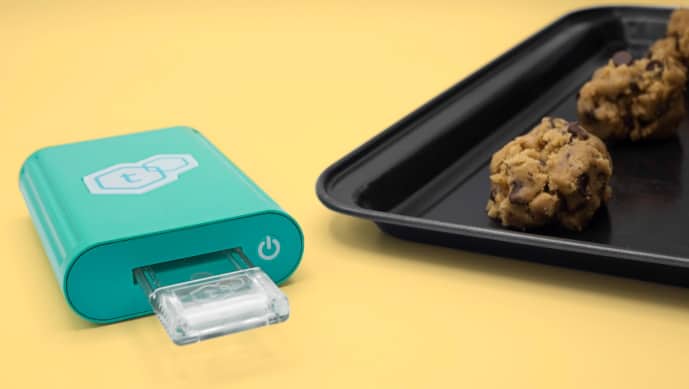
Five At-Home Cannabis Potency Testing Kit Options
Home testing kits usually require a very small sample of cannabis (about 1 gram). A test fluid is applied to the cannabis sample.
Afterward, the solution is shaken and within a few minutes you can compare the color with the included reference chart. The reference chart will give you a range of potency instead of an accurate calculation.
Some advanced home testing options use thin layer chromatography to obtain results. This process is a little bit more technical and may require some trial-and-error. A smaller sample (about 0.1 gram) is mixed with a test fluid. Then, the sample is applied to a glass plate, which is placed in a separate container with additional test fluid.
Fluid travels up the plate and separates cannabinoids based on their chemical properties. You can determine the cannabinoid potency based on the color and order of the cannabinoids.
When the plate is dry, a dye is applied to show the colored spots. A reference chart allows you to compare the size of your spot and determine its potency.
Here are five home testing kit options:
“
There are over 300,000 jobs in the cannabis industry. CTU trained me for one of them!

Makes $24.50 @ THC +
- Alpha-Cat Regular Testing Kit uses 0.1 grams of a sample to provide a cannabinoid profile of plants, oils, tinctures, extracts, and edibles.
- MyDx CannaDx Sensor & Analyzer is one of the most robust at-home testing options. This cannabinoid sensor can detect THC, CBD, CBN, and over 20 terpenes. In addition, a compatible app allows you to learn about a strain’s effects based on crowdsourced consumer feedback and the company’s lab-tested chemical database.
- Cannalytics Supply offers a wide range of testing kit options to test THC and CBD content of concentrates, oils, flowers, and edibles. It's most affordable option, the 16/20 kit comes with 20 cannabis tests and uses the principles of thin layer chromatography (TLC) to determine the product's potency.
- CB Scientific’s Test 4 Detection Kits can detect THC or THC and CBD at the same time in cannabis buds, extracts and oils, and edibles.
- TLC Lab Supply’s CTK Test Kit uses thin layer chromatography to determine the potency of your product.
Testing kits can be an affordable way for growers and users to quickly determine potency within a range.
However, some of the THC testing kits can only determine the cannabinoid content up to a certain percentage. If your product has a higher potency than the test can handle, you won't be able to get accurate results.
How to Test For Cannabis Potency Final Thoughts
States don't have any strict regulations about how chemicals in marijuana are measured. But it is still important to have measurements for the sake of the consumer, especially as it relates to safety and quality.
Knowing the potency of your cannabis products can help you accurately dose without “greening out.” Determining an accurate dose can also help medical patients maintain a predictable and effective treatment.
If you want to learn more about cannabis potency tests and the cannabis industry in general, enroll in the Cannabis Training University's marijuana classes today!

Luis Cordova
Luis Cordova is a distinguished author, and renowned expert in cannabis cultivation, who possesses a Master's degree in Plant Biotechnology and Pharmaceutical Science. As a valued contributor to highly esteemed publications such as Cannabis Training University and Maximum Yield Magazine, Luis has emerged as a trusted source of guidance and knowledge in the cannabis industry. Having written thousands of informative articles, Luis is widely recognized for his comprehensive expertise on cultivating cannabis, both indoors and outdoors.


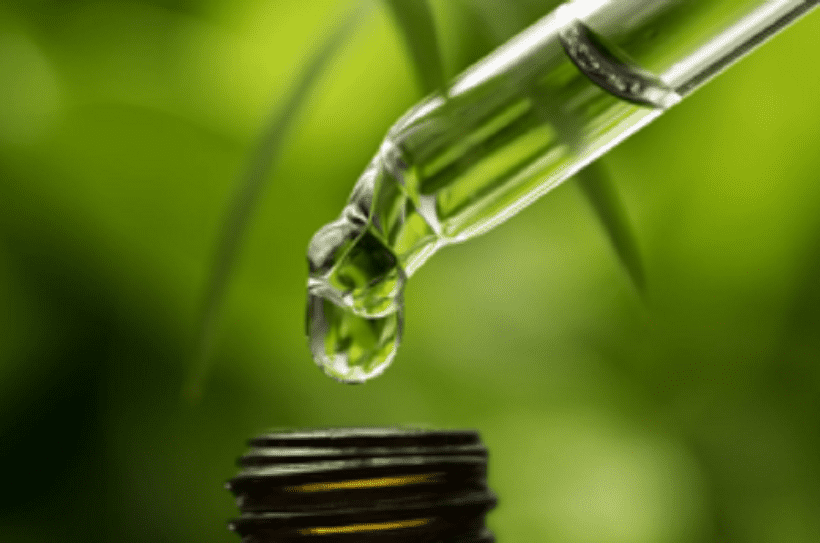


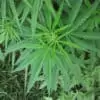
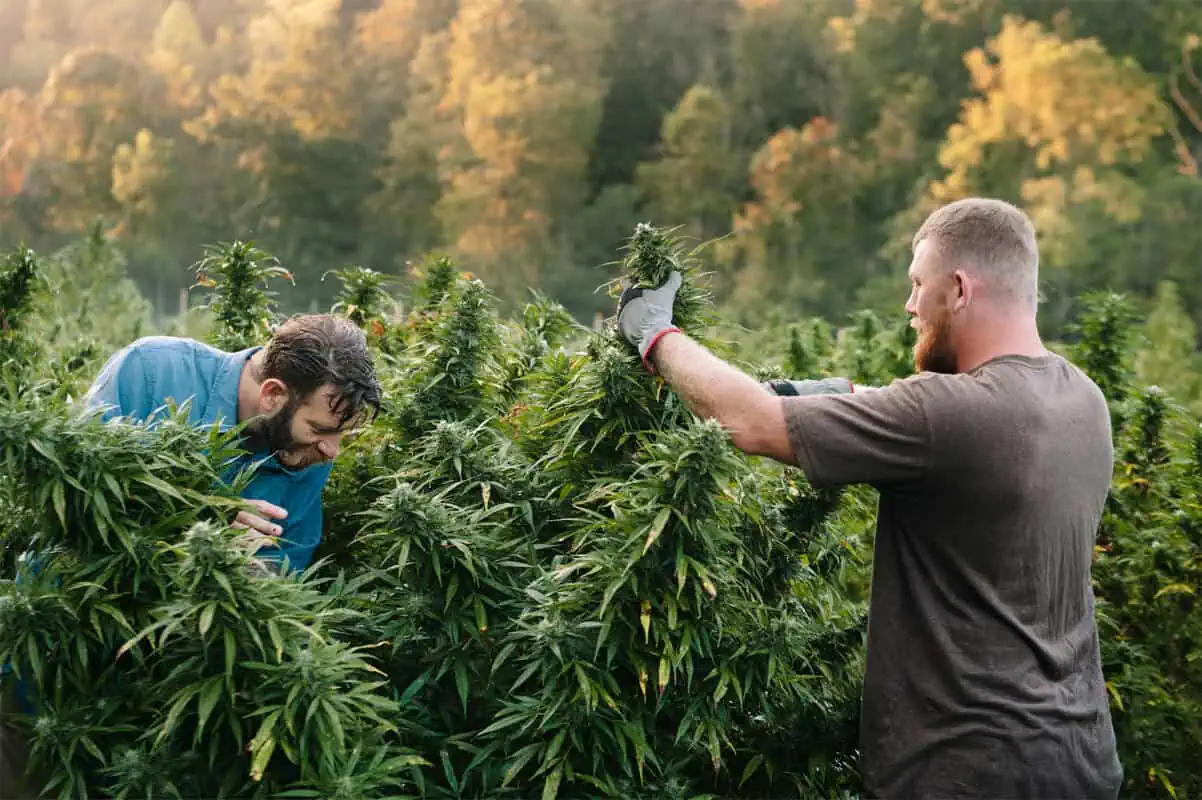
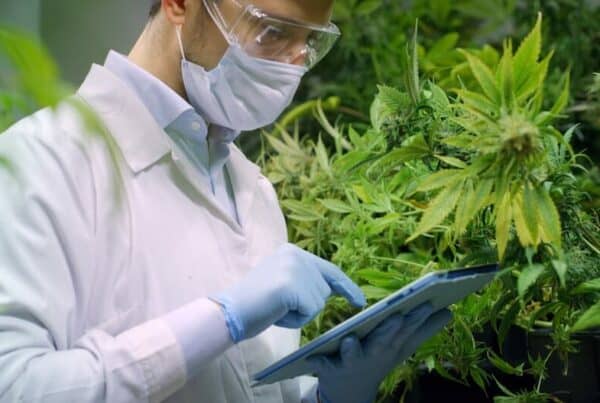
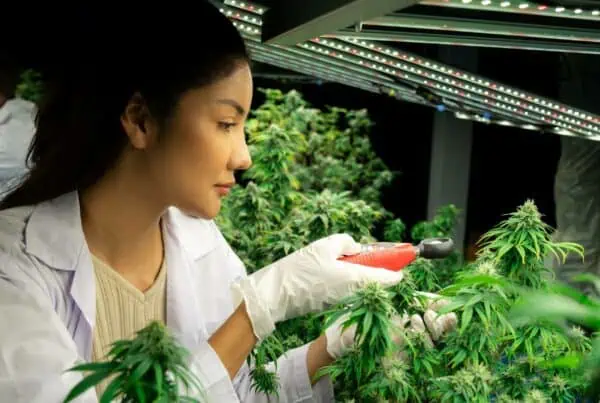
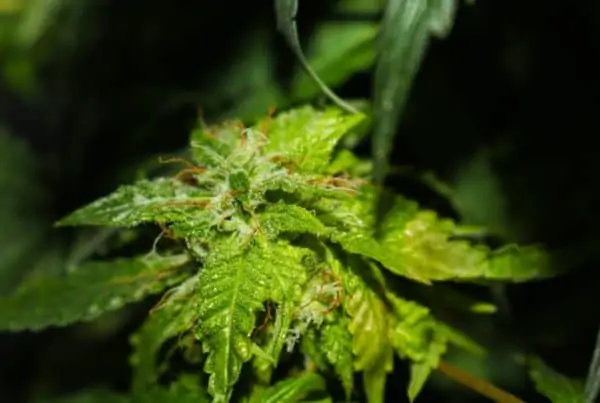
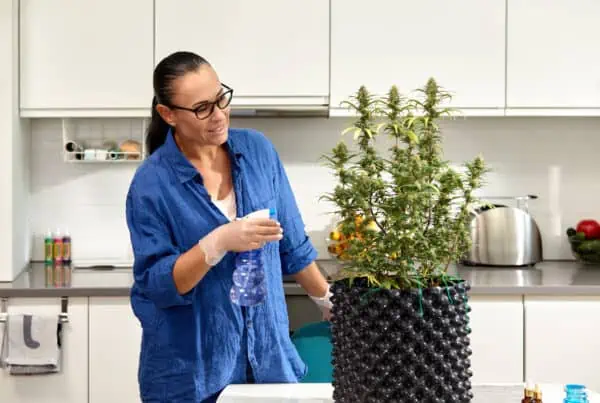

 Jeff was involved in an accident where he endured a traumatic brain injury. He had a week-long stay in ICU where brain surgeons
Jeff was involved in an accident where he endured a traumatic brain injury. He had a week-long stay in ICU where brain surgeons  100% risk free money back guarantee within 48 hours after purchase if student has not completed any of the courses or exams.
100% risk free money back guarantee within 48 hours after purchase if student has not completed any of the courses or exams.